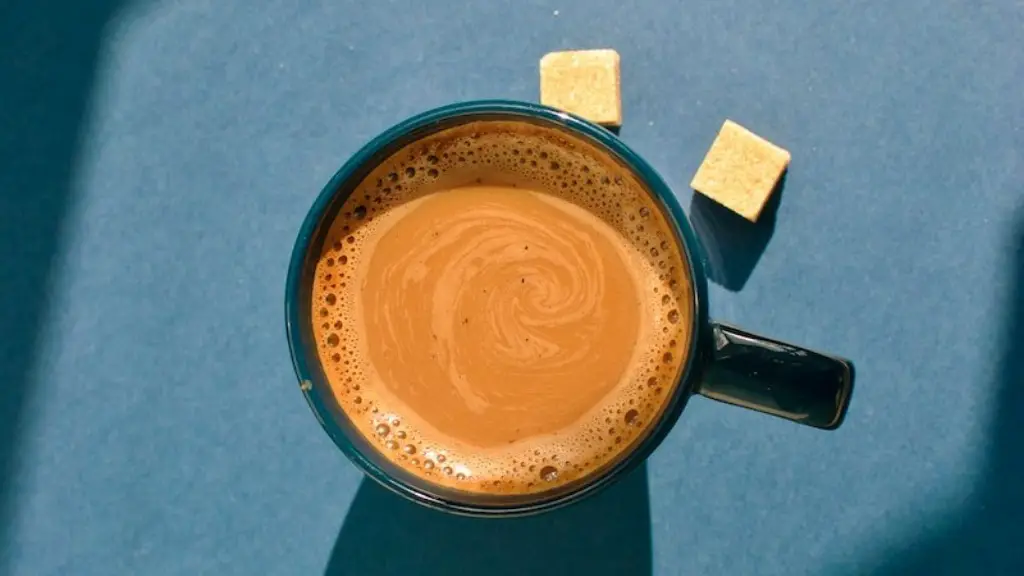How Coffee Affects the Body
Coffee is one of the most popular beverages around the world, consumed by millions of people each day. But did you know that drinking too much coffee can make you dizzy? In this article, we explore the science of why coffee affects the body and make you feel dizzy.
What Is Dizziness?
Dizziness is a feeling of lightheadedness or disorientation. It can cause a person to feel unsteady and lose their balance. Most of the time, the feeling is fleeting and temporary—but it can also be a symptom of an underlying medical condition or caused by certain medications.
Why Does Coffee Make You Dizzy?
Coffee contains caffeine, a stimulant that acts on your central nervous system (CNS). When consumed in moderation, caffeine can provide a boost in energy and focus. However, in large quantities, it can lead to feelings of dizziness, among other symptoms.
These effects can be intensified by the speed at which the caffeinated beverage is consumed. Drinking coffee quickly can lead to an increase in caffeine metabolism, creating a sudden surge in energy that can lead to feelings of lightheadedness and dizziness.
There is also scientific evidence showing that caffeine affects the flow of blood in vessels, disrupting its distribution and leading to dizzy spells.
Caffeine Sensitivity
Everyone processes caffeine differently. Some may have a higher tolerance for caffeine and can consume large amounts without feeling any side effects. On the other hand, someone who is sensitive to caffeine may experience side effects after just a few sips of coffee.
Age and gender also play a role. Generally, women and older adults may be more sensitive to caffeine due to hormonal differences and slower metabolism, respectively.
Caffeine Overdose Symptoms
In addition to dizziness, there are other signs of a caffeine overdose, such as nervousness, rapid heartbeat, headache, insomnia, nausea, and vomiting. It is important to stay within the recommended daily allowance of 400 mg per day, as it can be easy to over-consume caffeine, especially if you are drinking caffeinated beverages throughout the day.
Alternative Beverages
If you are experiencing dizziness or any other symptoms related to caffeine, there are plenty of alternatives. Herbal teas, decaffeinated coffee, and kombucha are good options. Additionally, you can add some natural sweeteners like honey, stevia, or dates to give your beverage a boost of flavor.
For those who are looking for the same energizing effect without the side effects, try swapping out your coffee for matcha. This special green tea has a high concentration of antioxidants and can be blended with milk and other natural flavors.
Reducing the Risk of Caffeine-Induced Dizziness
If you are prone to feeling dizzy after drinking coffee, there are a few things you can do to reduce your risk. First, try to drink your coffee slowly as opposed to gulping it down. This gives the body time to process the caffeine and helps to prevent spikes in energy levels.
Secondly, be aware of your caffeine tolerance and monitor how much caffeine you are consuming each day. Try to limit your intake to no more than 400 mg per day and be mindful of any potential side effects.
Finally, if the dizziness persists, speak to your doctor to rule out any underlying medical conditions or seek medical attention if needed.
Caffeinated Beverages and Mental Health
Studies have shown that coffee has a positive effect on mental health. Caffeine is known to aid focus and concentration, as well as boost energy levels. Studies also suggest that coffee can reduce feelings of depression and improve overall wellbeing.
However, too much caffeine can lead to feelings of anxiety and increase stress levels, which can worsen the symptoms of mental health disorders. It is important to be mindful of how much caffeine you are consuming and not to rely on it as a crutch to manage your mood.
It is also important to ensure that you are drinking coffee in moderation and taking regular breaks throughout the day to rest and relax. Taking time to exercise and meditate can also be beneficial for mental health and reduce stress levels.
Caffeinated Beverages and Physical Health
Caffeinated beverages have been linked to a number of health benefits, including improved heart health, reduced risk of type 2 diabetes, and increased alertness.
However, it is important to be mindful of the potential risks, particularly for those with existing medical conditions. Caffeinated beverages can increase the risk of insomnia, heart palpitations, and gastrointestinal problems. It is best to stick to the recommended daily allowance and seek advice from your doctor if you have any concerns.
Conclusion
Drinking coffee can be a great way to get a boost of energy, but it is important to be mindful of how much you are consuming and how it affects your body. Drinking too much caffeine can lead to feelings of dizziness, as well as other symptoms such as anxiety and insomnia.
Be sure to stay within the recommended daily allowance and speak to your doctor if you are feeling dizzy or any other side effects after drinking coffee. Additionally, consider opting for an alternative beverage, such as a herbal tea or decaffeinated coffee, to get the same energizing effects without the risks.


